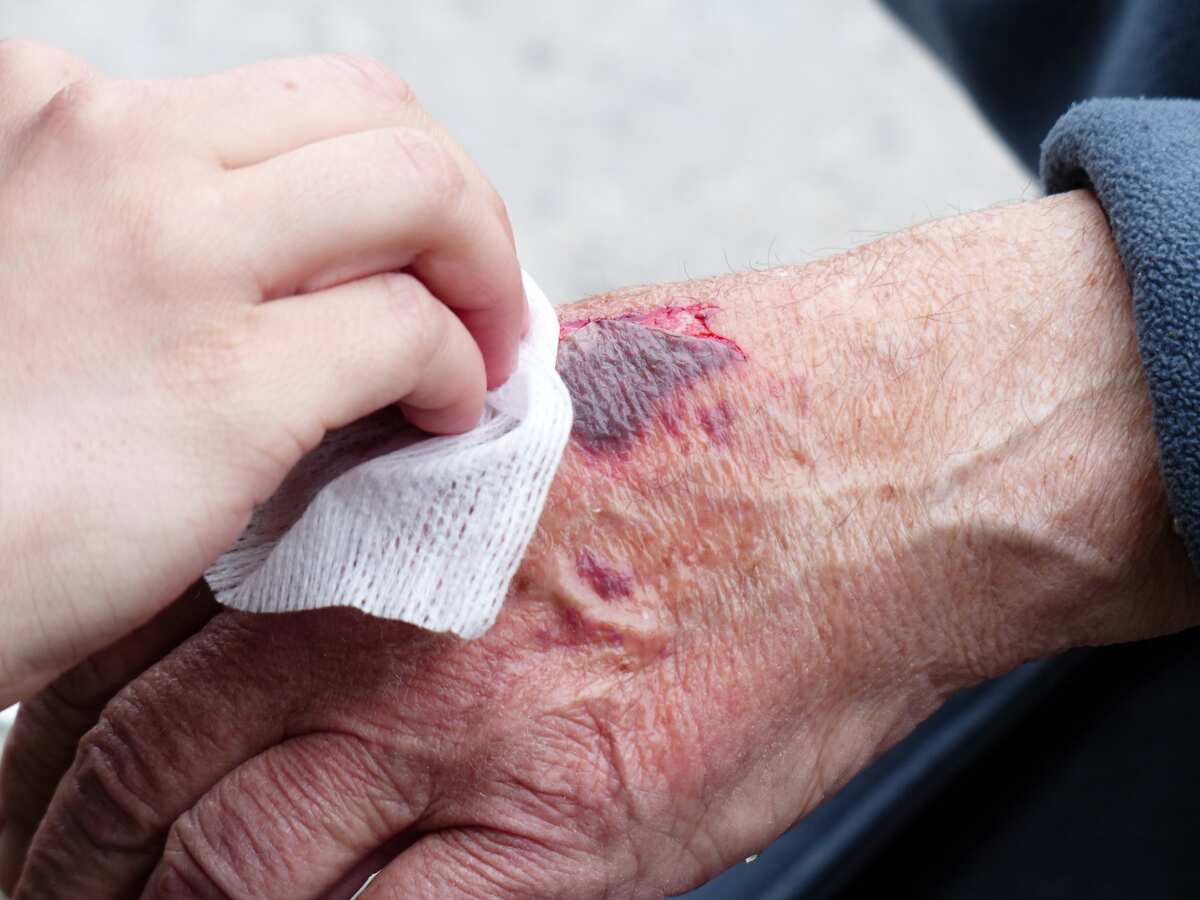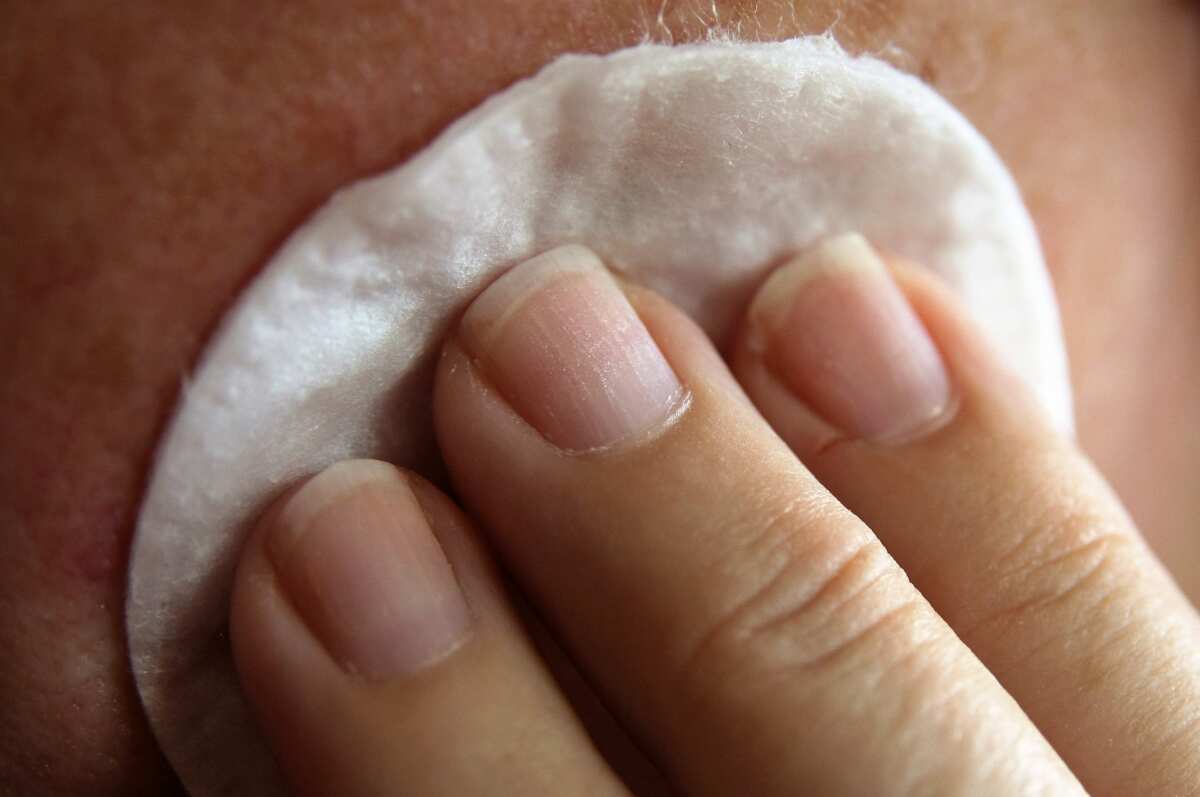If you have ever had an injury, then I bet you have an idea on what an adhesive is. Skin adhesives are essential when dressing wounds and injuries since they keep the dressings in place. They are therefore very beneficial. Unfortunately, their removal, especially if the dressings have aggressive glue is traumatic. Similarly, if the person who is removing the adhesives does not know how to remove adhesive from skin, then the patient may end up in a lot of pain during the adhesive removal process.

Image: pixabay.com
Source: UGC
In this article, we will discuss various practices conducted during adhesive removal and the most appropriate way to remove adhesive from skin.
READ ALSO: Argan oil benefits for skin and hair
How to remove adhesive from skin
In case you are having difficulties dealing with sticky substances, that remain on the surface of the skin when removing a band-aid, then the tips below will be of great help to you. Interestingly, most of them can be performed at the comfort of your home; no need for a doctor.
1. Use warm water
When it comes to the adhesive products one can use, they are limitless. One of the most recommended household items to get rid off adhesives from the skin is warm water. Warm water causes the resins present in most dressings and bandages to become more pliable. Hence, before one goes to visit the nurse who is removing the adhesives and dressings, it is imperative to soak the part with the wound in warm water.
2. Use almond oil
If not, one can take a shower to make the sticky substances and the bandages more flexible. This will, in turn, make the adhesives to come out on their own or gently come off when a nurse uses the abrasive pad to scrub them off gently. Another way of how to remove bandage adhesive is to coat the wound area with mild cooking oil such as almond oil. The oil is essential when trying to get rid of adhesives from the skin because it dissolves in the oil.
Therefore, after it has dissolved in the oil, the wound area is free from the gum and spares the patient harsh and rough scrubbing by nurses. The best way to use the almond oil to get rid off the glue is to pour it on the affected area and gently rub that area with a wash rag. If not, one can also spare a sip of vodka and pour in on this area to dissolve the adhesive off the skin.
3. By use of ice cubes
Another way to remove the sticky substance from the skin is by use of ice cubes. Ice cubes are widely known due to their cooling effect and their impact in reducing swelling. Due to this, most people often use them when they are accidentally hit at specific parts of the body. The exciting thing, the same ice cubes can also be used to get rid of the adhesive from the epidermis. All one is required to do is to take ice cubes, cover them with a clean paper towel, and place them on the affected area.

Image: pixabay.com
Source: UGC
One should leave the ice cubes on the wound for about five minutes to allow the sticky substance to detach from the epidermis. After those five minutes, the individual can then clean the wound area with a clean wash rag that will get rid of the gummy substance, which did not release from the skin after the ice cubes were placed on the wound.
Still, at the comfort of their houses, individuals can also use their lotions to get rid of the adhesives in their skin. Creams are known to contain a certain amount of fat, and can, therefore, be used to detach the adhesives from the skin.
READ ALSO: Top health benefits of moringa and its uses
4. Using lotion
When using a lotion, an individual is required first to pour a small amount of the lotion on the wound area and rub it through the wound using a cotton pad or a soft cloth. One should rub the area for at least a few minutes to ensure that all the adhesives will detach from the skin. However, one should avoid using scented lotions. If an individual has no lotion, then they can use baby oil. Baby oil is another effective product to use due to its high levels of fat that make it easy to scrub off the adhesives from the skin easily.
5. Bandage adhesive remover
There are various ways a person can remove the bandage paste. However, whichever method one chooses, it is essential to use very light pressure and to proceed cautiously and lightly. This is because if an individual exerts a lot of pressure and tends to be aggressive by scrubbing off the gum, then this will damage the skin around that wound. Consequently, this will only cause more pain for the patient. Thus, avoid any form of scrubbing or scarping when getting the glue off the skin.

Image: pixabay.com
Source: UGC
Why removing adhesive from skin is important
As mentioned earlier, the gummy materials are essential in holding the dressings in place. However, an individual cannot go on wearing the bandages for an extended time. One must get rid of them when the wound is healed, or have the gums changed when the dressings are also being changed. This process is susceptible and could be painful. Therefore, most people usually opt for adhesive removal from their wound area being done by nurses.
To reduce the risk of infections
It is crucial for a patient to have the hugging substance removed from their epidermis to avoid various infections. Typically, if the glue is not removed from the epidermis, the wound area acts as a trap for dirt and other debris. The dirt and debris on the soft tissue or the wound area risk a patient acquiring infections which may reduce an individual’s immunity and, therefore, make them weak and inactive.
Thus, it is crucial to remove the resins from the epidermis. However, even during the removal process, an individual can also be prone to acquire infections, especially if the person responsible for the removal has no idea on how to get adhesive off skin. In most cases, if the person removing the glue has no idea on how to go about it and has no knowledge that a patient has a delicate epidermis or had previously had multiple wounds in the same area, then the patient can easily acquire medical adhesive-related skin injury (MARSI).
What is medical adhesive-related skin injury (MARSI)?
MARSI refers to a complication that occurs roughly 30 minutes or more after removal of the adhesive. This is one of the most prevalent conditions that happen when most patients go to get rid of their dressings and have the glue removed from their skin. It is not limited to age and can, therefore, occur in individuals of all ages. To avoid these medical adhesive-related skin injuries nurses and first-aiders ought to know how to remove the adhesives from the skin effectively.
For a long time, individuals have been struggling to identify how to remove adhesive from skin. It is easy to get rid of this sticky and gummy substance from the epidermis using warm water, ice cubes, baby oil, unscented lotions, and using almond oil. These are products one can easily access at their household thereby making it ten times easier to get rid of the adhesives present on their skin.
DISCLAIMER: This article is intended for general informational purposes only and does not address individual circumstances. It is not a substitute for professional advice or help and should not be relied on to make decisions of any kind. Any action you take upon the information presented in this article is strictly at your own risk and responsibility!
READ ALSO: Does palm kernel oil lighten the skin?
Source: Legit.ng
from Legit.ng: Latest Nigeria News Today & Breaking Naija News 24/7 http://bit.ly/2GxwQ84
via EDUPEDIA24/7
Comments
Post a Comment